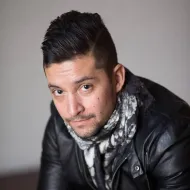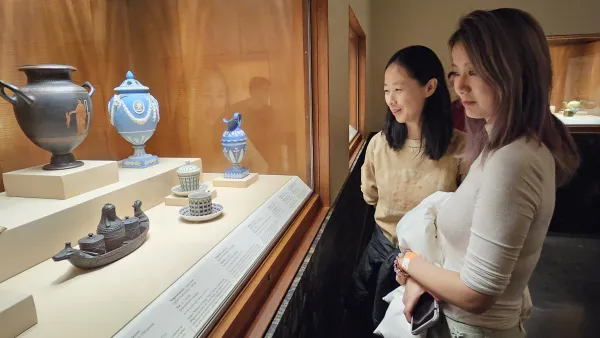Dear Members of the EALC Community,
It is with sadness that we share the news of David Holloway’s death. David was a beloved member of the EALC community for many years. A native of Colorado and a first generation college student, David began his studies at Washington University in Fall 1999, declaring a major in Japanese in Spring 2000. A frequent member of the Dean’s List, David graduated summa cum laude in Spring 2003. After earning an MA in Japanese Language and Literature from the University of Colorado Boulder in 2007, he returned to Washington University for his PhD studies.
David was an exemplary student in all ways. He made writing seem easy, and his papers always demonstrated elegance and verve. At the same time, he was receptive to criticism and ever willing to retool, revise, improve, and innovate. His work as a teaching assistant was exceptional. He taught the Introduction to Women’s Studies for the WGSS Program, where he earned the Certificate in 2011. He taught the Modern Voice in Japanese Literature as the primary instructor. For his efforts he received the Dean’s Award for Teaching Excellence, Spring 2011. A few years later he would be highly regarded as a Postdoctoral Teaching Fellow in our program introducing a tremendously successful course on Popular Japanese Culture. David was a wonderful mentor to his kohai (juniors in the program), ever willing to listen, advise, and help where he could. After a year in Japan on a Japan Foundation Dissertation Grant 2011-2012, David was awarded the Center for the Humanities Dissertation Fellowship, Spring 2014. His dissertation, “Look at Me: Japanese Women Writers at the Millennial Turn,” dealt with contemporary women writers Kanehara Hitomi, Ami Sakurai, and Hasegawa Junko, and the way they placed their characters in the visual economy of sexual politics.
David took a position as an assistant professor of Japanese in the Department of Modern Languages and Cultures at the University of Rochester in 2017 where he was also an important member of the Susan B. Anthony Institute for Gender Sexuality and Women’s Studies. Recently, he had taken on the role of director of East Asian Studies. He taught the core course “Sex and Power” for the SBA Institute. He developed and taught eight new courses for the MLC Department focused on modern Japanese literature and the intersection with gender, media, fantasy, and millennial issues. Ever concerned with equity and social justice, he taught at the Five Points Correctional Facility though what is now the Rochester Education Justice Initiative. Whatever the course or wherever the classroom, his students adored him.
David was a brilliant and prolific scholar. He already had six peer-review publications to his name with additional works under consideration. He had recently finished the manuscript The End of Transgression: Gender, Body, Nation, under contract with Routledge Press. The End of Transgression reads the works of Natsuo Kirino, Sakurai Ami, and Kanehara Hitomi against the backdrop of Japan’s lost decade and the culture of precarity it engendered. For these writers, scenes of shocking violence and sexual exploitation are commonplace and no longer serve to catalyze protest. Rather, David argues that the “trendiness of taboo,” paradoxically, renders transgression “a safe literary maneuver.” These writers, he maintains, are not seeking to explode the status quo, but to restore it. In a chapter David was writing for Rebecca Copeland’s forthcoming Handbook of Modern and Contemporary Japanese Women Writers, he discusses Kakuta Mitsuyo and Kanehara Hitomi and the way their stories center on women struggling to overcome personal traumas. Their works, he reasoned, while offering somber portraits of literary characters “mired in the wreckage of the past,” are ultimately optimistic in outlook, “examining the lengths to which the female protagonists go to assuage the traumas of the dark past and secure bright futures.”
David had a sly sense of humor and a winning smile. He was a meticulous observer of human nature. His photographs are stunning. A few prize-winners still grace the walls of our Comparative Literature Department. A creative writer, he specialized in the very short form of flash fiction. His longer story “An Encounter at Aokigahara” was recently published in the collection Yamamba: In Search of the Japanese Mountain Witch (Stone Bridge Press, 2021). David was fascinated by fashion—particularly Alexander McQueen—and saw his own body as a canvas for the decorative arts. He enjoyed basketball and would have played it indefinitely, but his knees had other ideas. He turned to boxing instead, as well as yoga.
Trusted dog walker, lover of chocolate, conscientious friend, and sensitive soul, David will be deeply missed.


